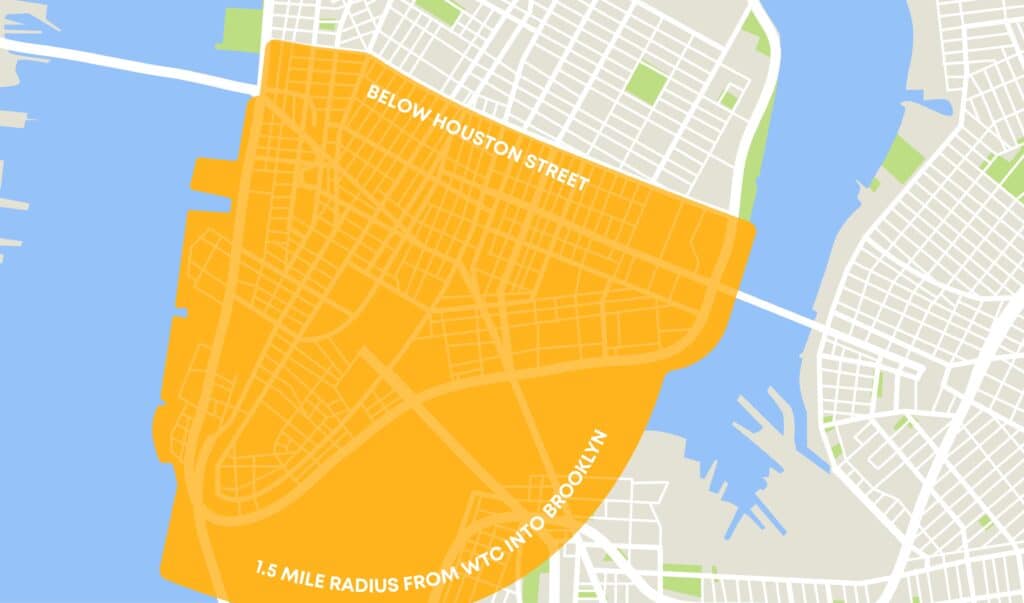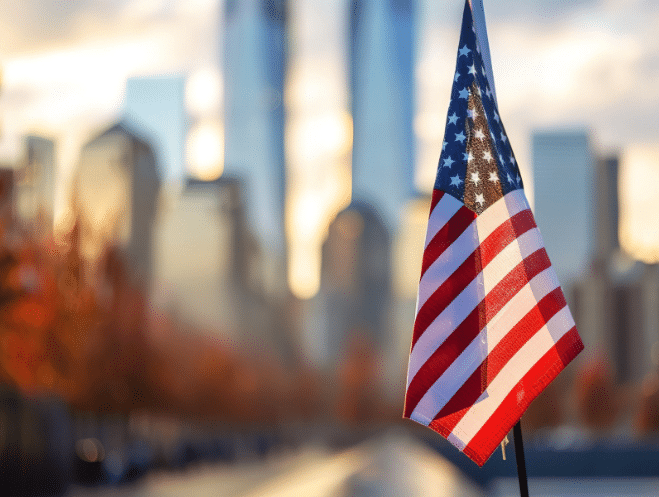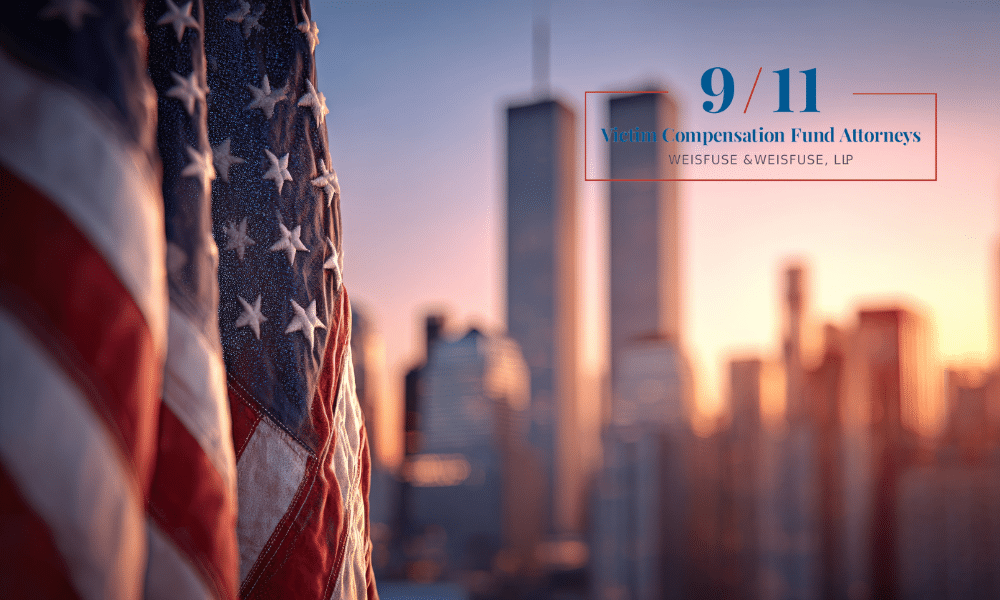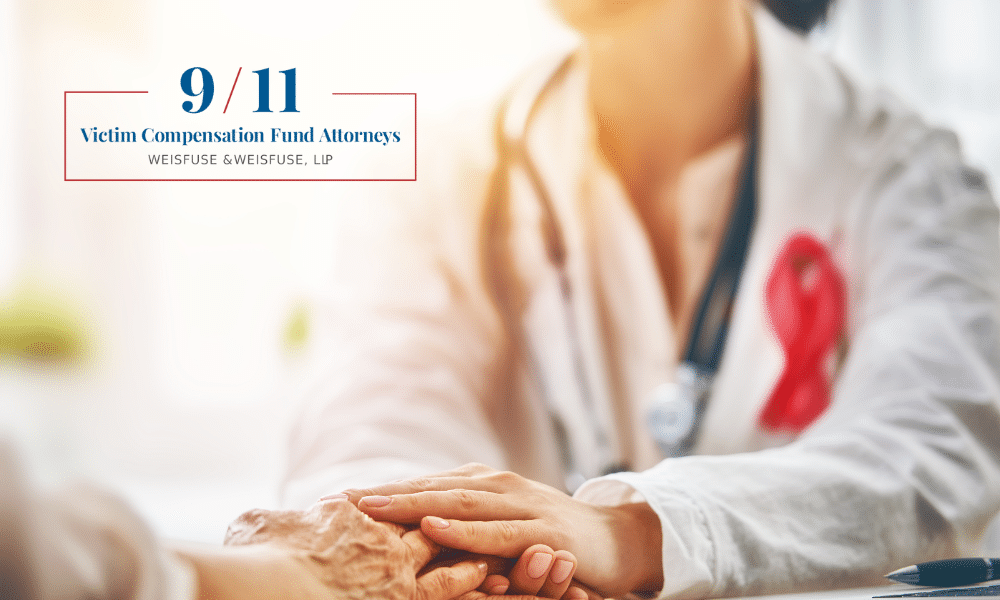9/11 WTC Health Program announces new NPN vendor
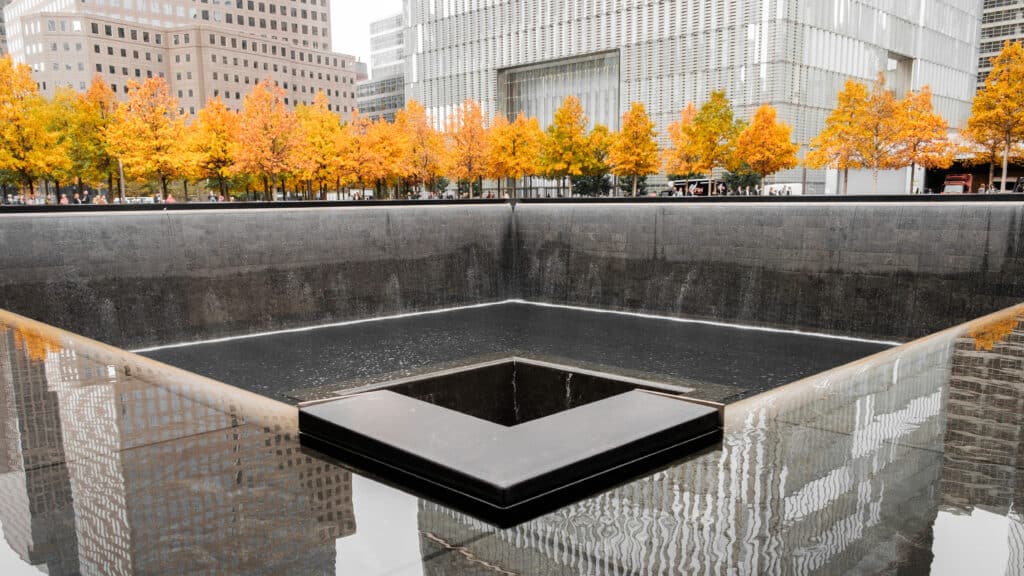
Starting in late spring of 2022, Managed Care Advisors (MCA)-Sedgwick will be the Nationwide Provider Network (NPN) vendor for the World Trade Center (WTC) Health Program. MCA-Sedgwick will be taking over the responsibilities of the current vendor, Logistics Health Incorporated (LHI). The NPN vendor handles claims for the approximately 24,000 WTCHP members who live outside of the metropolitan area and require treatment for 9/11-related medical conditions.
LHI’s 5-year contract ended in 2021, which gave other vendors an opportunity to apply for the contract, per federal regulations. After a rigorous review of vendor proposals, in accordance with federal acquisition laws and regulations, MCA-Sedgwick was selected as the most qualified company.
NBC News investigation & 9/11 WTC Health Program
The change in NPN vendor might be welcome news to survivors and first responders who told NBC News that they had problems working with LHI last fall. These included inappropriate billing, difficulty scheduling routine exams, and a lack of personal attention.
These reports prompted members of the New York State Assembly to request a meeting with LHI and the National Institute for Occupational Safety and Health, which has oversight over the Program. The meeting was called to address allegations that LHI was failing to provide some Program members with access to the qualified medical attention they were entitled to receive.
Although LHI promised to look into these problems, the federal agencies in charge of this benefits program chose a new vendor, MCA-Sedgwick, a few months later when the contract expired.
What does this change mean for Program members?
MCA-Sedgwick will attempt to retain the existing roster of care providers in the network so WTC Health Program members can continue with their current providers. If that is not possible, MCA-Sedgwick will contact members and make arrangements to continue care with a new provider.
As part of the transition, LHI case managers and care coordinators will be handing off their assignments to MCA-Sedgwick point-of-contact staff. MCA-Sedgwick will contact members with information about these changes.
The transition from LHI to MCA-Sedgwick is already underway and is expected to be complete by late spring of 2022. In the meantime, members can access their Program benefits and care through LHI until further notice. During this transition period, the 9.11 WTC Health Program will provide news, updates, and answers to frequently asked questions at their NPN Transition information webpage at https://www.cdc.gov/wtc/npntransition.html. Members can also contact the Program’s call center at (888) 982-4748.
Clarification on 9/11 Commuter Eligibility
Approximately half a million people in lower Manhattan were exposed to toxic dust following the 9/11 attack on the World Trade Towers. This included commuters who got stuck in the area when everything shut down, and, as a consequence, were directly exposed to the toxic dust cloud that was released when the towers collapsed. This group is eligible to enroll with the World Trade Center (WTC) Health Program and submit claims to the September 11th Victim Compensation Fund (VCF).
There has been some confusion about the eligibility of commuters who passed through lower Manhattan after September 11 on their way to jobs or other business. Traveling through the disaster area in the period following the attack (September 12, 2011 to July 31, 2022) does not meet the statutory requirements of the WTC Health Program. Unfortunately, some WTC victim compensation lawyers have been giving their clients who commuted incorrect information about their eligibility. These applicants are understandably confused and upset when they are told that their circumstances do not meet Program requirements.
Understanding 9/11 victim compensation fund eligibility
Why would someone be eligible if they were commuting through the area on the day of the attack, but excluded if they were there on the following days or months?
The WTC Health Program was created to provide medical monitoring and care to anyone who developed a certified 9/11-related health problems because they were in the vicinity of the attack on or after 9/11. Creating victim compensation eligibility categories was a necessary step in setting up the process of identifying appropriate Program members, and the steering committees who were working to create the guidelines had some incredibly difficult decisions to make.
First responders who arrived at the scene immediately following the attacks on the World Trade Center and clean-up crews who worked tirelessly in the weeks and months afterward had the most direct and extreme exposure to the toxins that were released by the destruction of the towers. The Program mapped Ground Zero and the World Trade Center Exposure Zone to identify the geographical area that posed the greatest risk.
When it became clear that residents, students, and employees who were told it was safe to return to the area also had an increased risk for 9/11-related health conditions, the Exposure Zone was extended to south of Houston Street**. This boundary line was somewhat arbitrary. After all, residents living one block above Canal Street were breathing the same toxic air as their neighbors living below this line.
Making decisions about the eligibility of commuters who were in the Exposure Zone on 9/11 or after 9/11 is a similar grey area. There is no question that being trapped in the dense dust cloud resulting from the collapse of the towers poses a health risk; evidence regarding the effects of commuting through the Exposure Zone afterwards is less conclusive.
What if your 9/11 WTC Health Program application is denied?
WTC Health Program eligibility criteria require evidence of the following:
- Applicant was present in WTC Exposure Zone between September 11, 2001, and May 30, 2002
- Applicant was present for a significant number of hours
- Applicant has a 9/11-related illness
Since the Program realizes that the categories it established cannot account for every 9/11-related case, it will consider all factors presented in an application before issuing a denial.
If someone is not eligible for the WTC Health Program, they may still have options through the VCF. The Special Master will review applications claiming extraordinary circumstances, and if there is enough evidence to demonstrate that a physical health condition is related to time spent in the disaster area, compensation may be approved.
The experienced 9/11 victim compensation fund attorneys at Weisfuse & Weisfuse, LLP understand the documentation required for a successful compensation or treatment claim across the spectrum of eligibility categories. Call us today at 212-983-3000 for a free consultation.
** Numerous advertisements and media outlets are informing New Yorkers about their possible eligibility for 9/11 benefits if they were in Lower Manhattan during the attacks and suffer from health conditions due to toxic dust exposure. At Weisfuse & Weisfuse LLP, we emphasize that the “exposure zone” isn’t limited to Canal Street but can extend further to Houston Street.
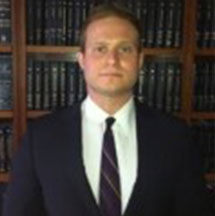
About Jason Weisfuse –
9/11 Victim Compensation Fund Attorney
About Jason Weisfuse –
9/11 Victim Compensation Fund Attorney
Jason E. Weisfuse is a seasoned 9/11 cancer attorney and managing partner at Weisfuse & Weisfuse, LLP, a New York City-based law firm dedicated to representing individuals affected by the September 11th attacks. Since the establishment of the September 11th Victim Compensation Fund (VCF), Jason has been instrumental in assisting first responders, survivors, and families in securing the compensation and medical benefits they deserve.
With a Juris Doctor from New York Law School (2009), Jason brings extensive experience regarding the 9/11 Victim Compensation Fund to his practice. His deep understanding of the VCF and the World Trade Center Health Program (WTCHP) has enabled him to navigate complex claims processes effectively, resulting in substantial awards for his clients.
Jason’s commitment to the victims in the 9/11 community is evident through his active involvement in professional organizations such as the New York State Trial Lawyers Association and the American Association for Justice. He has also contributed to legal discourse with publications in the New York Law Journal, reflecting his dedication to legal excellence and advocacy.
At Weisfuse & Weisfuse, LLP, Jason continues to provide compassionate and knowledgeable representation, ensuring that those affected by 9/11 receive the support and compensation they are entitled to.


